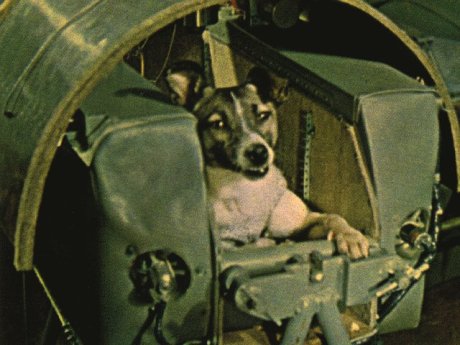The Overview Effect as Perspective Taking
18 September 2013
Wednesday
In my previous post on The Epistemic Overview Effect I now realize that I failed to make an obvious connection with some earlier threads of my thought. Specifically, I failed to see or to develop the connection between the overview effect and what some developmental psychologists call “perspective taking.”
In The Hierarchy of Perspective Taking I discussed the developmental psychology of Jean Piaget, Erik Erikson, and Lev Vygotsky. In this post I attempted to show how perspective taking transcends the life of the individual and applies as well to entire civilizations — which distinction might be called that between ontogenetic perspective taking and phylogenetic perspective taking. In this post I wrote:
“Piagetian cognitive development in terms of perspective taking can easily be extended throughout the human lifespan (and beyond) by the observation that there are always new perspectives to take. As civilization develops and grows, becoming ever more comprehensive as it does so, the human beings who constitute this civilization are forced to formulate always more comprehensive conceptions in order to take the measure of the world being progressively revealed to us. Each new idea that takes the measure of the world at a greater order of magnitude presents the possibility of a new perspective on the world, and therefore the possibility of a new achievement in terms of perspective taking.”
Re-reading this passage in light of the overview effect — the view of the earth entire experienced by astronauts and cosmonauts, as well as the change in perspective that a few of these observers have had as a result of seeing the earth whole with their own eyes — I would now add to my exposition of a hierarchy of perspective taking that the expansion and extension of civilization not only produces new ideas and conceptions, but also new experiences. Technology makes it possible to experience aspects of the world directly that were impossible to experience prior to the advent of industrial-technological civilization.
The overview effect is a paradigmatic case of technologically-facilitated experience. While I could say that those who have, so far, been fortunate enough to experience the overview effect, are “forced” as a result of their experience to formulate new conceptions of the world as a consequence of their experience (as I used this idiom of being “forced” previously), it would be better to say as I put it more recently in The Epistemic Overview Effect that the experience is a trigger that inspires an effort to formulate a conception of the world adequate to the experience.
While the overview effect itself is likely a powerful experience, merely the idea that others are experiencing an overview can itself be a powerful experience. This involves the most fundamental of all ethical thought experiments: the attempt to place ourselves in the position of the other, and so to experience the otherness of the other and the otherness of ourselves. When we believe that we have understood the other’s point of view, it is not unusual to say, “I can see your perspective.”
Perspective taking in the form of taking the perspective of the other is a key achievement in the development of an ethical perspective of the individual life. Some never achieve this level of insight, and some come to an adequate appreciation of the perspective of the other only late in life.
In the Swedish film My Life as a Dog there is an beautiful evocation of such ethical perspective taking in the life of a young boy, by way of the theme of the Russian space dog Laika, which recurs as a motif to which the young protagonist returns time and again as an example of perspective. Here are some of the voiceovers from the protagonist’s narration:
“And what about Laika, the space dog? They put her in the Sputnik and sent her into space. They attached wires to her heart and brain to see how she felt. I don’t think she felt too good. She spun around up there for five months until her doggy bag was empty. She starved to death. It’s important to have something like that to compare things to.”
…and…
“It’s strange how I can’t stop thinking about Laika. People shouldn’t think so much. ‘Time heals all wounds,’ Mrs. Arvidsson says. Mrs. Arvidsson says some wise things. You have to try to forget.”
…and…
“…I’ve been kinda lucky. I mean, compared to others. You have to compare, so you can get a little distance from things. Like Laika. She really must have seen things in perspective.”
Laika did indeed see things in perspective, and may well have experienced the overview effect before any human being. The young boy in My Life as a Dog understands this, intuiting the Laika’s perspective, and is able to better judge his own station in life by comparing his situation to that of Laika.
As long as our industrial-technological civilization continues in its development (i.e., as long as it does not succumb to the existential risks of flawed realization or permanent stagnation), we individuals contextualized within this civilization can continue our development, and this development will be facilitated by the technologies produced by this civilization that will give us new experiences, and these new experiences will afford us with new perspectives on the world.
Recently there have been many new stories about Voyager-1 being the first human artifact to leave the solar system (cf. Voyager probe ‘leaves Solar System’ by Jonathan Amos, Science correspondent, BBC News). Meditations upon the achievement of Voyager-1 have taken the form of a perspective taking on our solar system entire. We are inspired to contemplate our perspective on the world by imaginatively taking the point of view of Voyager-1. Some day, a human being will travel as far or farther than Voyager-1, and will look back and see our sun at a distance, as we once looked back and saw the earth for the first time at a distance.
Our technologically-facilitated perspective taking will not end there. There are grander views yet to contemplate, and grander conceptions of nature that will follow from a direct, visceral experience of these grander views. As wonderful as the Earth must appear from space, and as transformative as seeing this must be, further in the future there will be the possibility of flying far enough beyond the Milky Way that we will be able to turn around and look back at our home galaxy. Knowing it to be our home (and by that time having come to a kind of astronautical familiarity with the Earth, our solar system, and the Orion Spur of the Milky Way), we will be moved by the sight of our entire galaxy seen whole, in one glance of the eye, hanging suspended and seemingly motionless against the blackness of space unrelieved by stars — for the only companions to our galaxy from this extra-galactic point of view will be other galaxies, and this astonishing perspective may well spur us toward a yet more comprehensive, therefore more adequate, conception of the universe.
. . . . .
. . . . .
. . . . .
. . . . .






[…] The Overview Effect as Perspective Taking (geopolicraticus.wordpress.com) […]
[…] The Overview Effect as Perspective Taking (geopolicraticus.wordpress.com) […]
[…] The Overview Effect as Perspective Taking […]